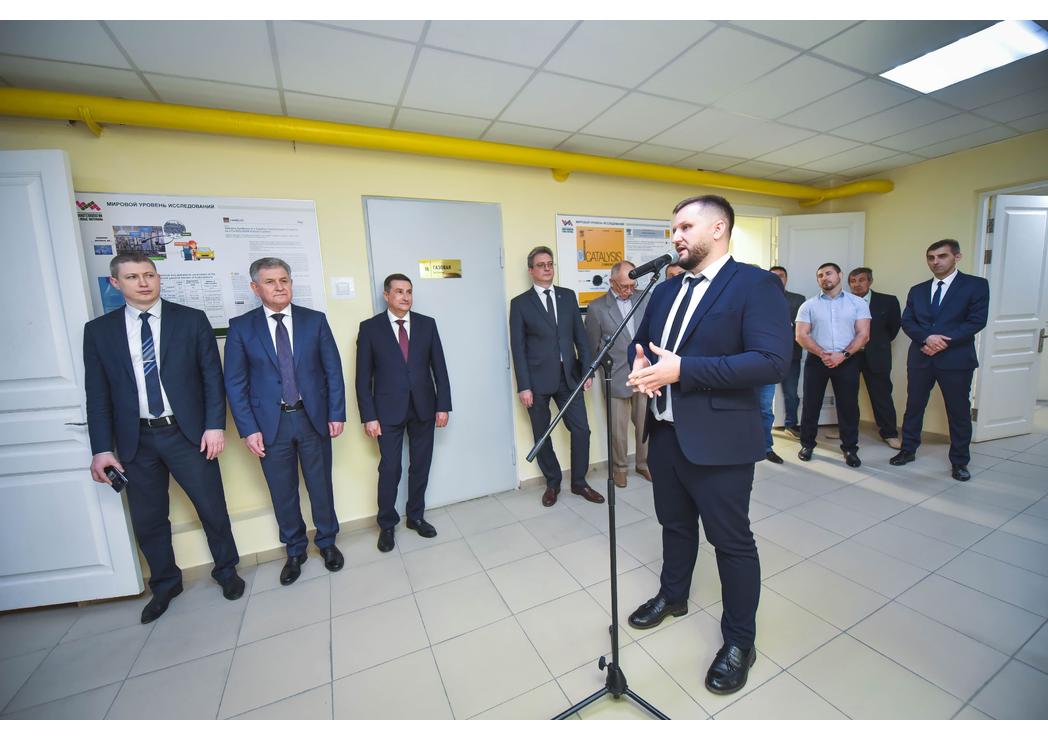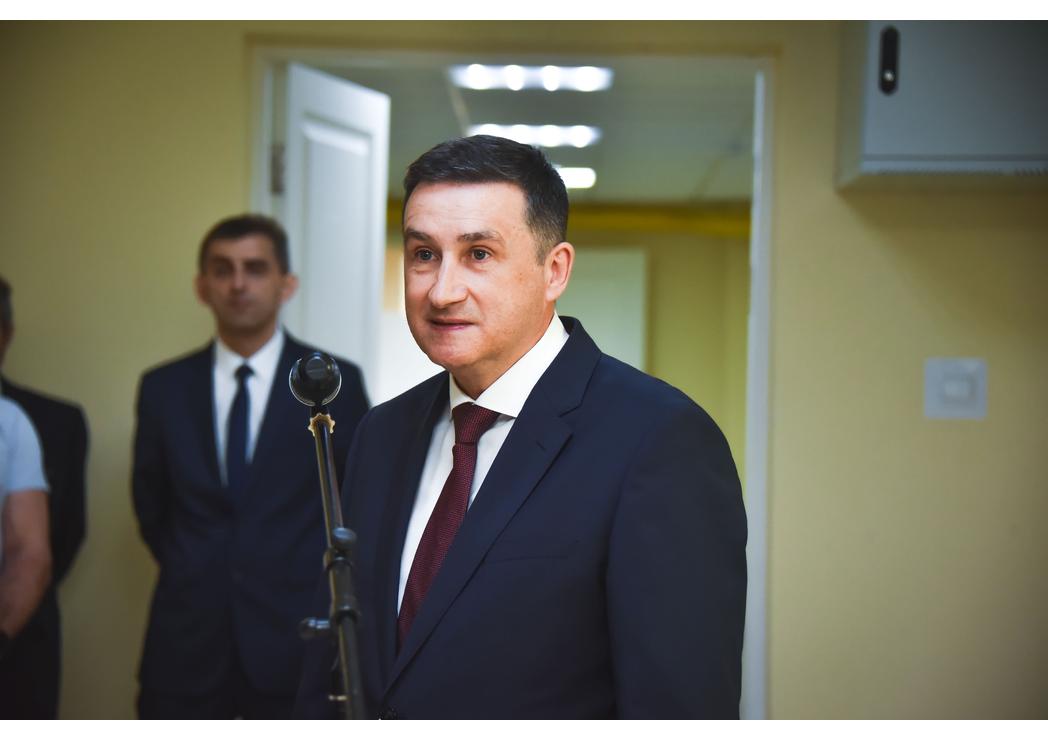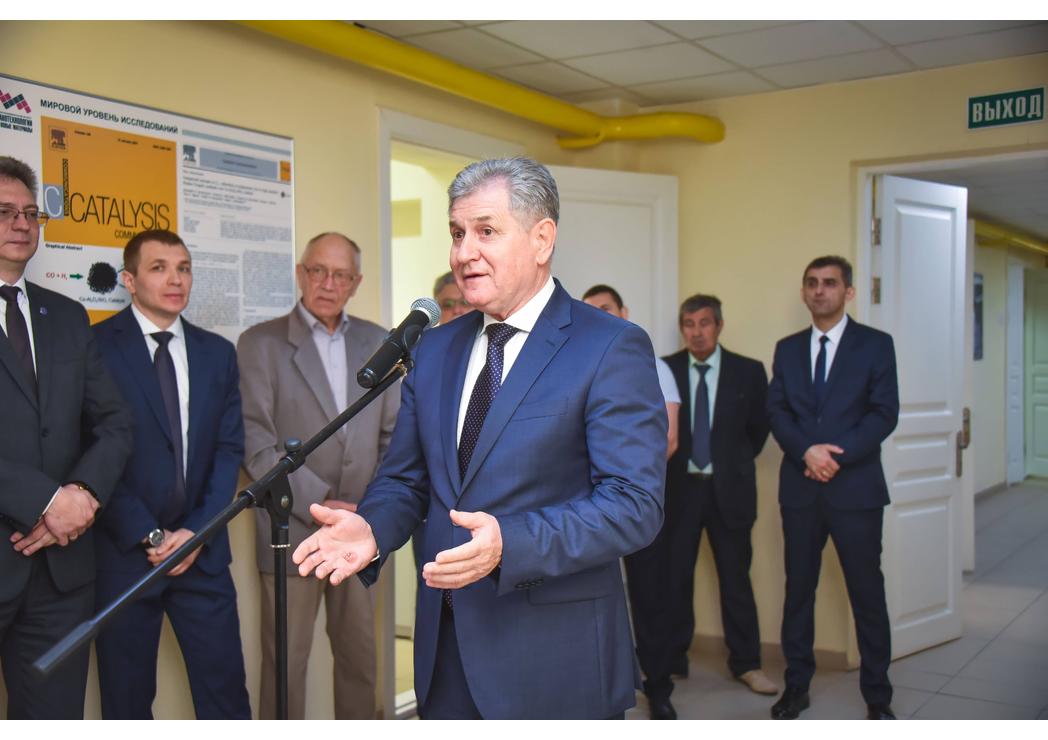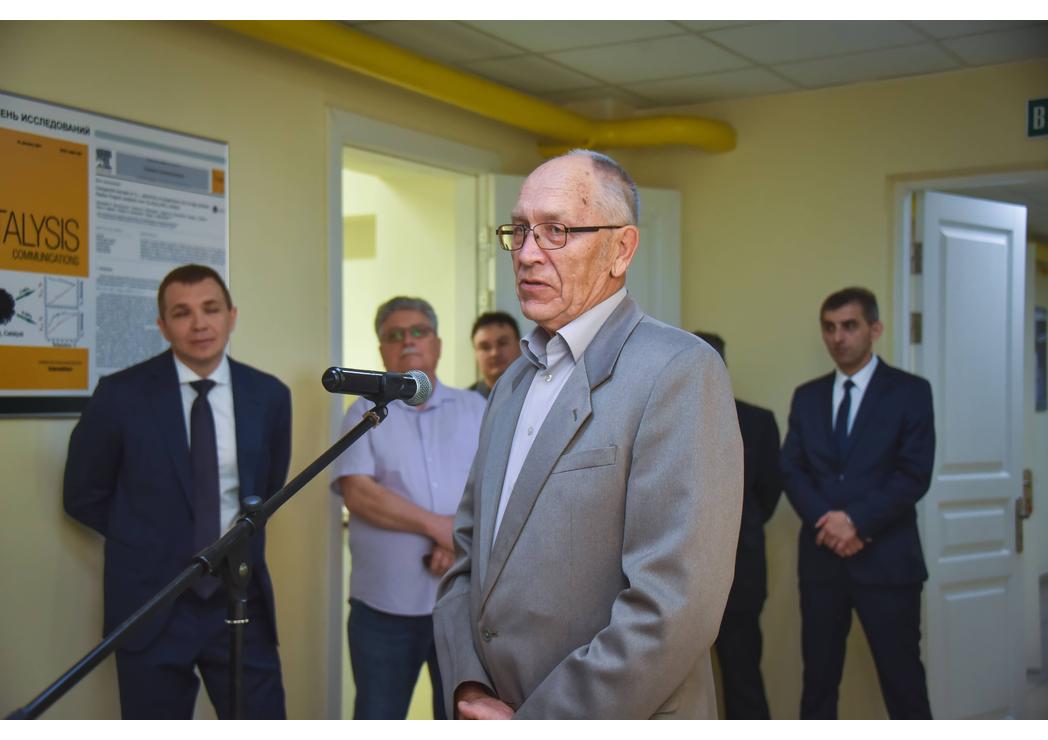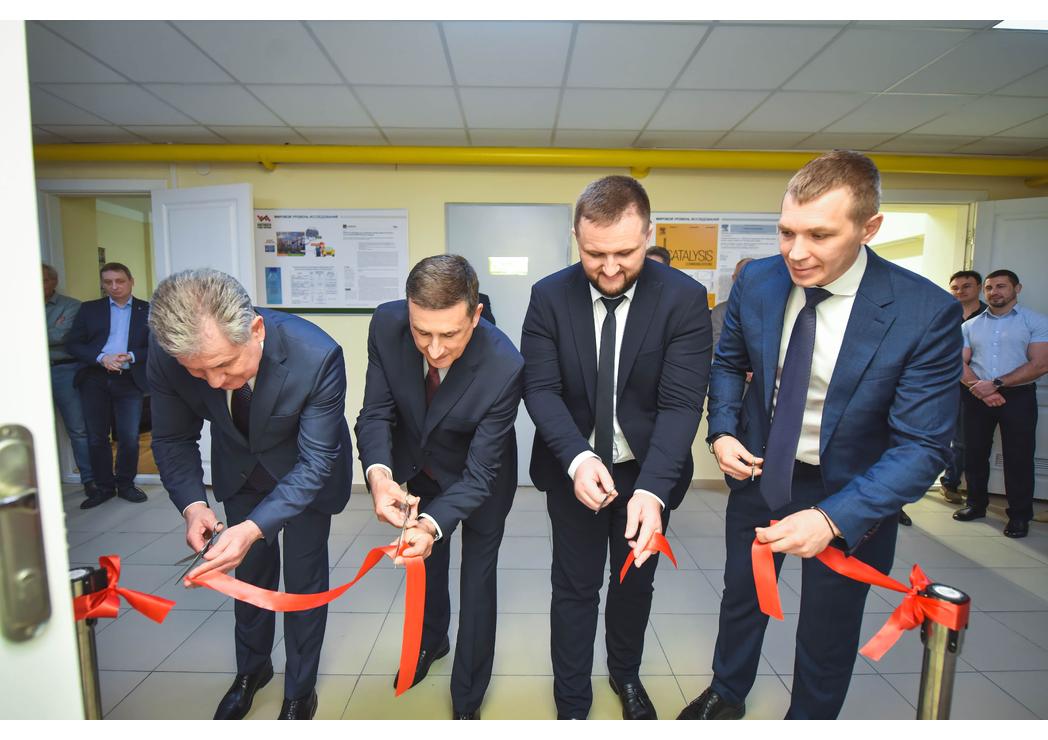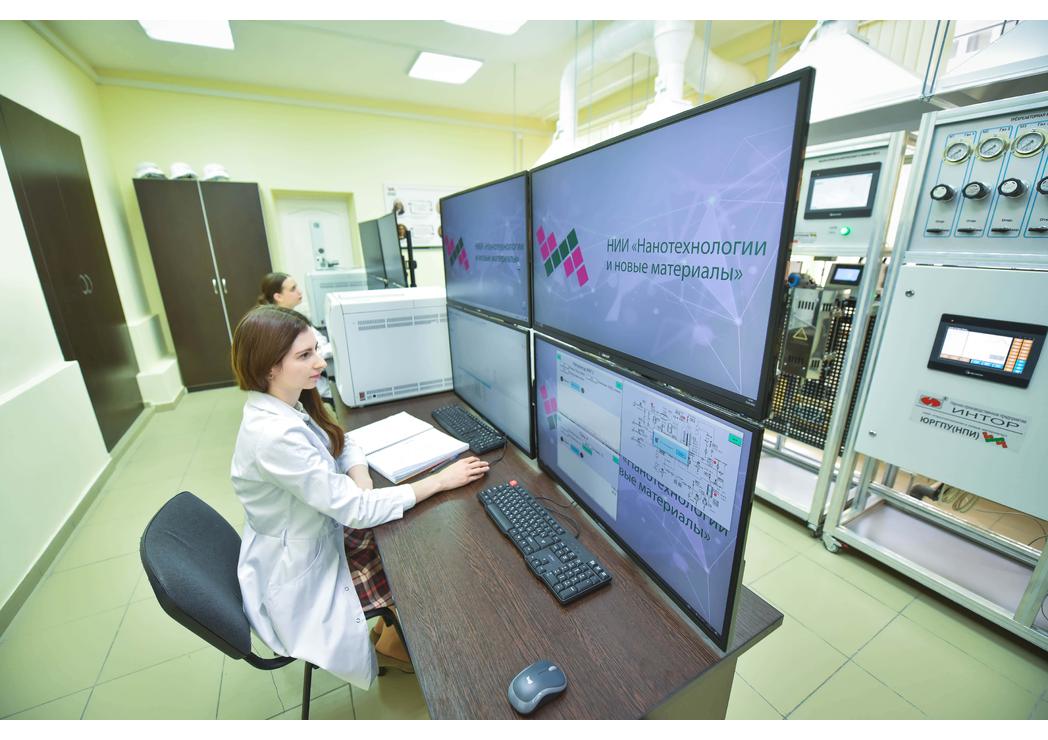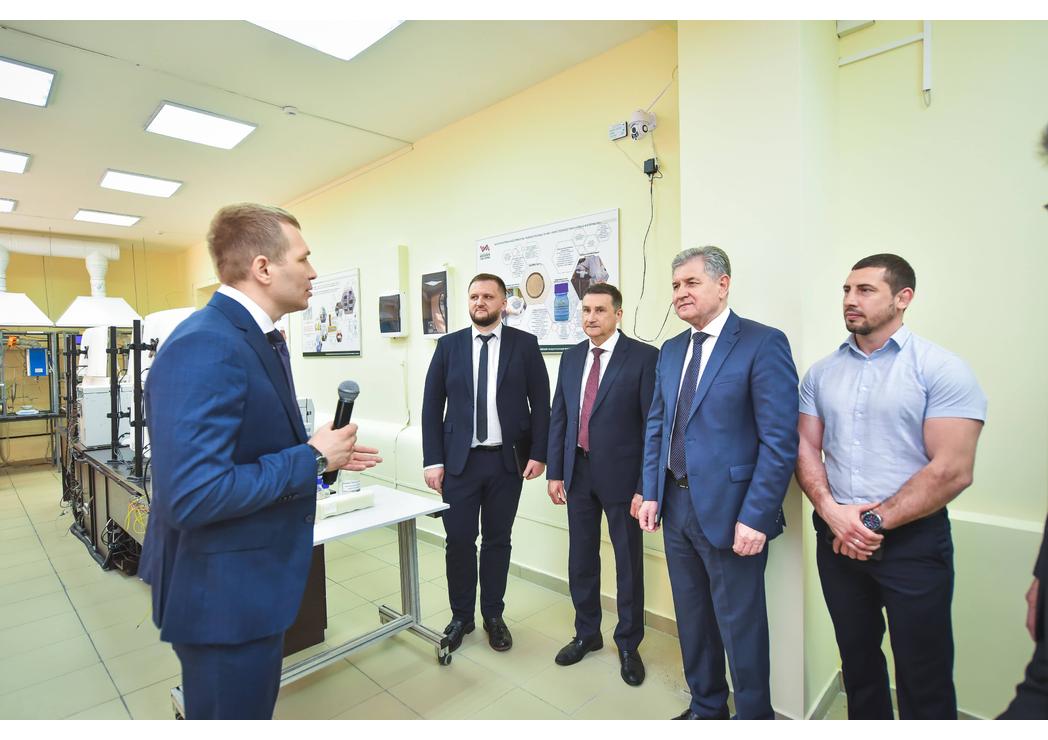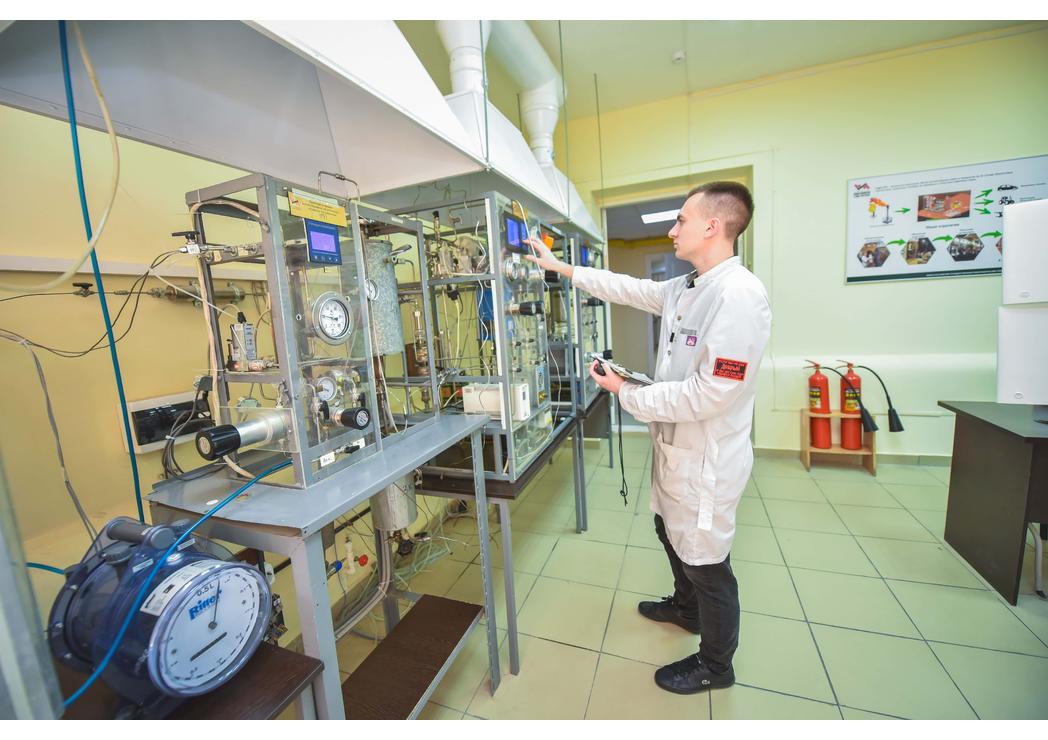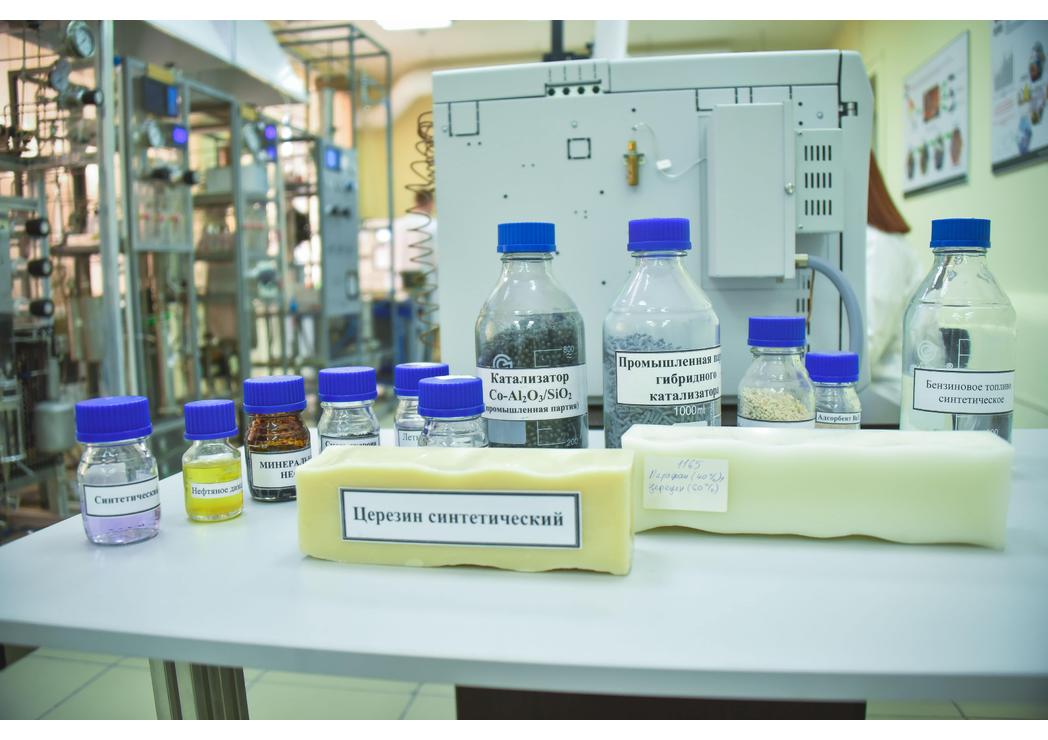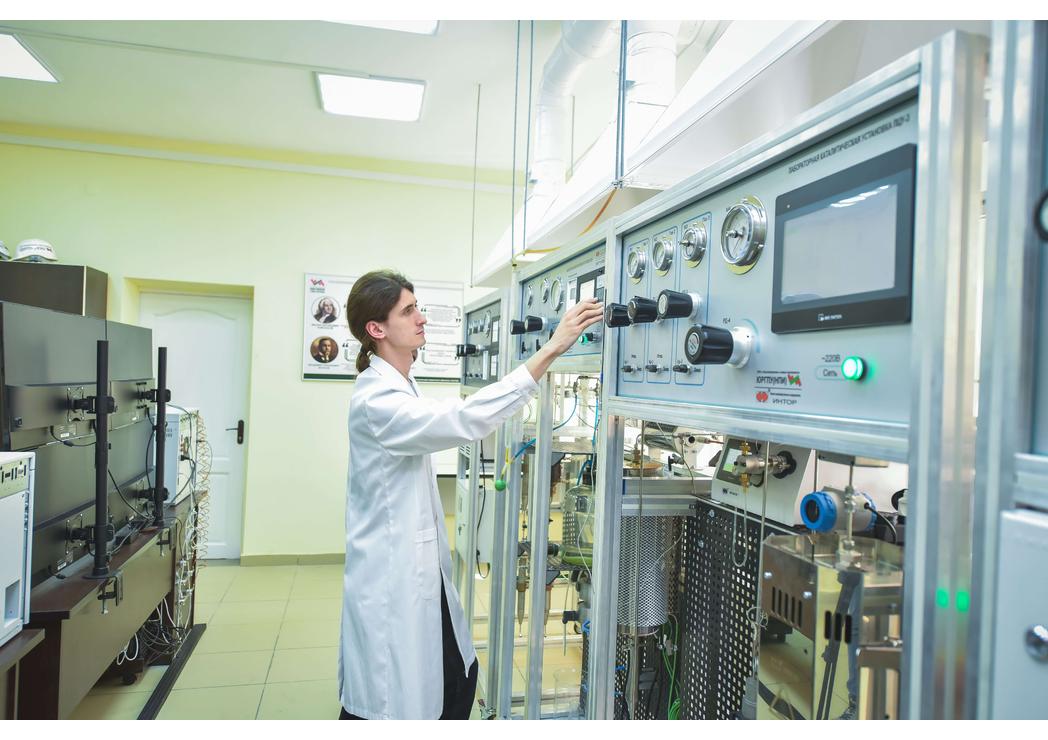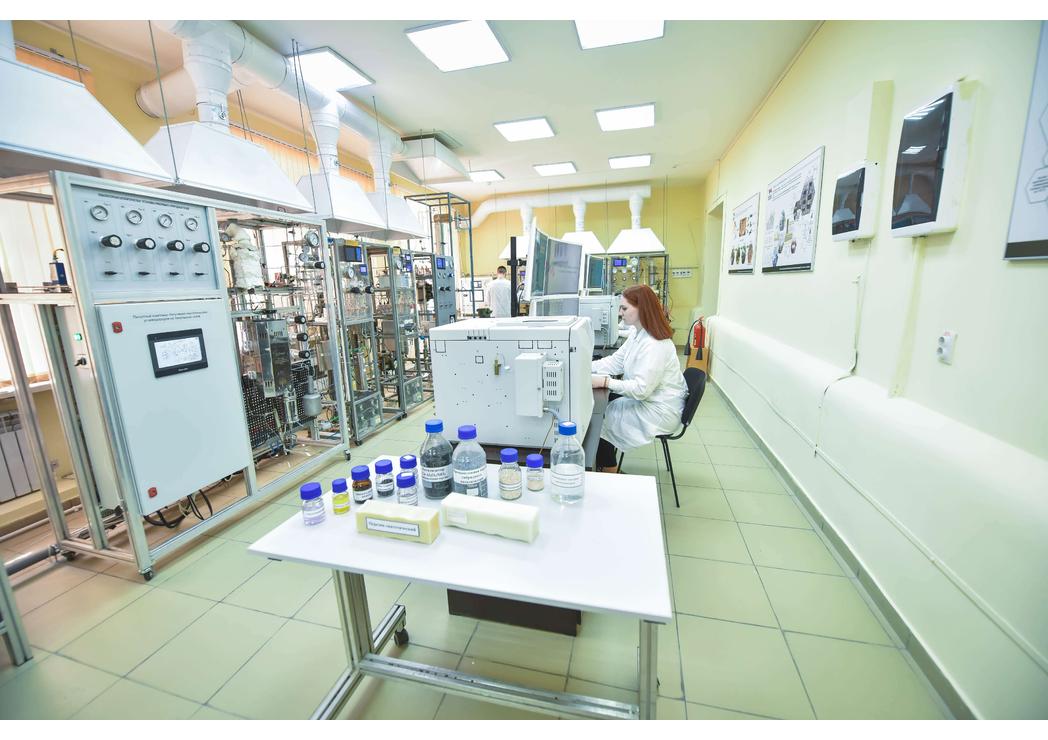The updated and renovated scientific and educational laboratory “Heterogeneous Catalysis”, equipped with fifteen unique installations, opened at SRSPU (NPI) on April 18. Preferential funding for the creation of the laboratory was allocated under the Priority 2030 program.
The guests of the laboratory opening ceremony were the First Deputy Minister of General and Professional Education of the Rostov Region S.S. Anishchenkov, rector of SRSPU (NPI) Yu.I. Razorenov, acting Head of the Novocherkassk Administration V.V. Sinyugin, vice-rectors and professors of the first university in the South of Russia.
“I congratulate my native university on an event that is significant for regional science,” Sergei Sergeevich Anishchenkov, a graduate of SRSPU (NPI), addressed those present. – There is no doubt that the opening of the laboratory will give rise to a new round of development of fundamental research. It is gratifying that the implementation of national projects has made it possible to open a new laboratory on the basis of the university, because without catalysts in industry many processes would be impossible.
The words of the Deputy Minister are confirmed by statistical data: domestic industry requires 60-70 thousand tons of catalysts per year, while only about 20% of much-needed catalysts are produced in Russia. Our chemical and petrochemical industries critically depend on modern catalysts, so the importance of the work on their creation and technological processes based on them cannot be overestimated. According to a prominent representative of the NPI school of catalysis, Professor A.P. Savostyanov, “ninety percent of chemical technologies are catalytic, and the influence of the level of development of the science of catalysis on the technological potential of the state is comparable to the influence of the level of development of nuclear energy.”
Improving the processes of heterogeneous catalysis is one of the key areas of ensuring the technological sovereignty of the Russian Federation in the field of deep processing of hydrocarbon raw materials, the creation of fuels and lubricants with unique characteristics (for example, adapted for operation in the Arctic and the Far North) and the synthesis of rare compounds and substances.
“Today, there are fewer countries that have developed and are engaged in the production of catalysts of all types than countries that own nuclear weapons,” emphasized the importance of creating a heterogeneous catalysis laboratory, the rector of SRSPU (NPI) Yuri Ivanovich Razorenov. – Therefore, we have room to grow, the market is huge. Accordingly, personnel and laboratories are needed that would contribute to such development.
It is expected that with the launch of the heterogeneous catalysis laboratory at the university, an additional 10 jobs will be created to involve young specialists in research activities and over 150 jobs at partner enterprises.
There are no analogues of the “Heterogeneous Catalysis” laboratory in terms of the composition of the available equipment in Russia - neither in universities, nor in research centers. The main feature of the updated space is that all the installations of the polytechnic were designed and created from scratch themselves, using the partner support of NPP Intor, on the basis of which the main parts are manufactured.
Director of the Nanotechnologies and New Materials Research Institute Roman Yakovenko recalled how it all began: “In 2019, we delivered the first four installations to the Russian Technological University (MIREA). The product line began to expand, new types of installations appeared, and supplies were made to Tyumen State University and Perm National Research University. There are already orders from industrial enterprises and scientific organizations of the Russian Academy of Sciences. Now we are working on new modifications of installations - three-reactor installations, in which three independent processes can be simultaneously studied, which means that much more scientific data can be obtained in the same period of time.”
Roman Evgenievich told the guests of the opening ceremony about the key areas of work of the Heterogeneous Catalysis laboratory. Technologies for deep processing of natural gases and coals into synthetic fuels, methanol, oils, ammonia and ceresins are already being created here; catalysts are being developed for petrochemistry and oil refining; Gas-chemical processes for the production of oligomers, alcohols and organic acids are being developed.
The laboratory is currently conducting research for the needs of PJSC Gazprom Neft, JSC Taneco, PJSC SIBUR Holding, LLC NPP Intor and others. The range of scientific partners is wide and authoritative - the Institute of Organic Chemistry named after N.D. Zelinsky RAS, Institute of Petrochemistry and Catalysis RAS, Institute of Petrochemical Synthesis RAS, Institute of Catalysis named after G.K. Boreskov RAS, Russian State University of Oil and Gas (NRU) named after I.M. Gubkina.

